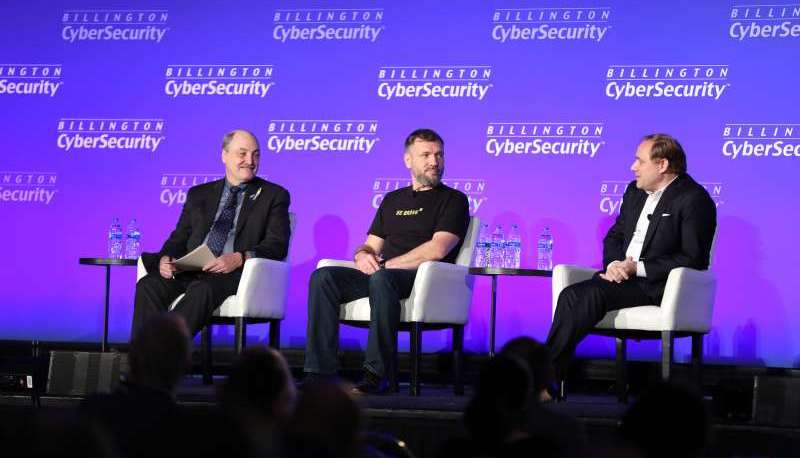
Russia’s war on Ukraine has not singularly been a terrestrial battle. The war has also involved large-scale cyber operations – the first of its kind. However, Russia has been unable to achieve any prominent advantage in its cyber warfare efforts after its first attack. Ukrainian digital officials attribute this to their ‘secret ingredient’ – the Ukrainian IT Army.
Gerogii Dubynskyi, deputy minister for the Minister of Digital Transformation of Ukraine, explained that their IT team, while often characterized as ‘hacktivists,’ was significantly made up of IT professionals who wanted to contribute to the war effort.
“People just came voluntarily on the street and asked to be given weapons, and people from the IT community also volunteered,” Dubynskyi said at the Billington Cybersecurity Summit on Sept. 9.
Ukraine needed an active defense in cyberspace, and the IT Army filled that gap left by Ukraine’s failure to develop an offensive cyber capability, he added.
The IT Army’s experience in IT showed that it’s possible to “hack back” without unconstrained collateral damage, he explained. And while the hacktivists probably haven’t achieved any strategic results, “and frankly that’s hard to do,” he said, they have created a nuisance and affected morale both in Russia and Ukraine.
As far as the decision to go over to the attack in cyberspace, Dubynskyi said, “we had no other choice because a small Soviet army can’t defeat a big Soviet army.” Ukraine had to innovate under the pressure of invasion.

Joining Dubynskyi on stage – via video – was fellow Ukrainian government official, Mykhailo Fedorov, the vice prime minister at the Minister of Digital Transformation of Ukraine.
He too attributes Russia’s failure to achieve significant strategic effects in cyberspace to the IT Army of Ukraine. The main contribution the IT Army made was in fighting disinformation and propaganda, and a great deal of that fight has been carried to Russian media, Fedorov explained.
“Not only are Russian channels of disinformation being disrupted, and Russian media hijacked to display protest against the war, but the IT Army has also been engaged in informing Russian mothers of their sons’ deaths, information that the Russian government is slow to share,” Fedorov said. “The IT Army is also collecting evidence of war crimes. Ukraine is showing the whole world that in the 21st Century the truth cannot be suppressed.”
In addition, Dubynskyi attributed the government’s earlier decision to move its data to the cloud as a strategic advantage in Russia’s cyberattack.
Cyberattacks came in conjunction, as the war began, with kinetic strikes that destroyed data centers. But just before Russia invaded, Ukraine allowed public data to be moved to public clouds, so the cruise missiles that hit official data centers didn’t destroy the data.
“Amazon, Microsoft, Google, and Oracle, responded to our call quickly. And other governments offered private clouds, notably Poland and the Baltic states. Collaboration with big tech has been very important to us,” Dubynskyi said.
Notably, in the first few hours of its invasion, Russia achieved its most significant cyber success, shutting down Viasat modems in Eastern Europe. This temporarily shut down Ukrainian military communications, but those communications were restored relatively quickly as Western technology companies provided alternatives.
While Dubynskyi considered it too early to confidently detail significant lessons learned, he did acknowledge the necessity of strengthening digital resilience, keeping close cooperation with allied nations, nurturing partnerships with big tech, and getting the media involved in countering disinformation.
Fedorov thinks that the first lesson to be learned is about the reality of Russian power – it’s been generally overestimated.
“We’ve shown the whole world that Russia is not the powerful state everyone thought it was,” Fedorov said. “Both Russia’s kinetic power and its cyber capabilities were believed to be greater than the war has revealed them to be. They’re not the second-best army in the world, and they’re not the best hackers in the world, either.”
“Do not allow yourselves to be threatened by Russia. And be brave,” Dubynskyi concluded.
